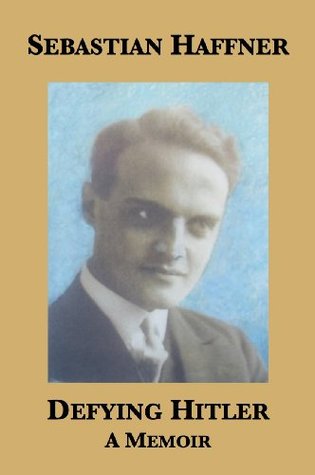More on this book
Community
Kindle Notes & Highlights
From 1914 to 1918 a generation of German schoolboys daily experienced war as a great, thrilling, enthralling game between nations, which provided far more excitement and emotional satisfaction than anything peace could offer; and that has now become the underlying vision of Nazism.
What was to be done? Casting around, people found a life raft: shares. They were the only form of investment that kept pace — not all the time, and not all shares, yet on the whole they managed to keep up. So everyone dealt in shares. Every minor official, every employee, every shift worker became a shareholder. Day-to-day purchases were paid for by selling shares. On wage days there was a general stampede to the banks, and share prices shot up like rockets. The banks were bloated with wealth. Obscure new ones sprouted up like mushrooms and did a roaring trade. Every day the entire population
...more
Amid all the misery, despair, and poverty there was an air of light-headed youthfulness, licentiousness, and carnival. Now, for once, the young had money and the old did not. Moreover, its nature had changed. Its value lasted only a few hours. It was spent as never before or since; and not on the things old people spend their money on.
They had never learned to live from within themselves, how to make an ordinary private life great, beautiful, and worthwhile, how to enjoy it and make it interesting. So they regarded the end of the political tension and the return of private liberty not as a gift, but as a deprivation. They were bored, their minds strayed to silly thoughts, and they began to sulk. In the end they waited eagerly for the first disturbance, the first setback or incident, so that they could put this period of peace behind them and set out on some new collective adventure.
The collective trauma today. Disconnected from self, and with limitless information and propaganda, we descend into madness to avoid looking at ourselves.
Besides, he promised everything to everybody, which naturally brought him a vast, loose army of followers and voters from among the ignorant, the disappointed, and the dispossessed. That, however, was not decisive.
I have no talent for hate. I have always been convinced that involving oneself too deeply in polemics and arguments with incorrigible opponents, hating the despicable too much, destroys something in oneself — something that is worth preserving and is difficult to rebuild. My natural gesture of rejection is to turn away, not to go on the attack.


